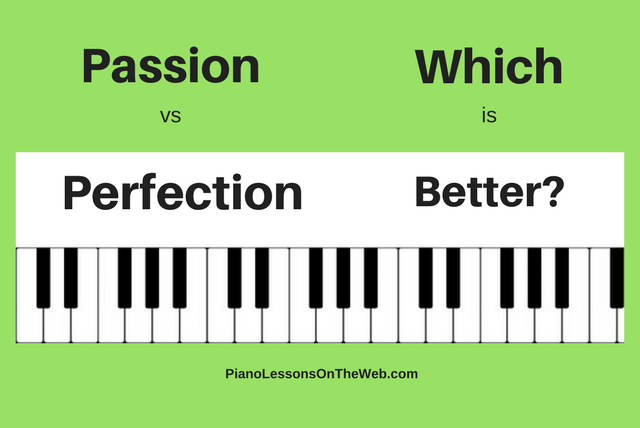|
It's a bit like walking a tight-rope...the reason we practice is to get better at playing our music; the notes, the rhythm, the articulations and dynamics. There's always something to improve in one or more of those categories. We're always perfecting something in our music and playing. This is all intellectual work. But then there's another side to playing that comes directly from our "hearts" or emotional centers that puts a whole new level into our playing. Without even realizing it, we connect to a certain piece emotionally and start playing from an entirely different place. Loud sections are louder, soft sections are softer, accents are harder and slurs are more fluid and smooth. If you've listened to a few different types of performers, you may have noticed that some performances struck you in deeper way than others. You may have thought about that performance several times after you even saw it because something just hit you, and you can't shake it off. When we play like this, we're playing from our "passion" center, not just our intellectual center. Perhaps the best way to experience this yourself is when you get mad about something the next time, go and sit down and play your piano! Anger is just such an out-there emotion that it easily shows up in our playing which helps you to see and hear and feel it, especially if you haven't experienced playing emotionally before. Many times when we become a little stagnated in our playing, it can be because we're so focused on "getting everything perfect" that we totally leave out the emotional component of the piece and in our playing. No emotions basically means a little boring! But what about technique? It's vital...we have to learn our music correctly of course. But it's important to remember that it's not just about getting everything correct. Music is emotional communication. Music literally is received in a different part of our brains than from where we receive verbal language. Amazing, eh? It's processed differently as well. Just like in our written and spoken communication, where we have to spell correctly and speak in the correct tense, we do the same in music by bringing our passion in partnership with our perfection. In order to play our best, we really need both. In the beginning we're working mostly on technique and learning the mechanics of playing the piano. As we grow technically however, the emotional interaction with our music must grow as well and we do this simply by feeling our music, and putting emotions into our music. There are some teachers that do emphasize passion over perfection, or the reverse. I tend to believe that both are interdependent and one without the other, isn't as successful in terms of how we end up playing our pieces. In fact, if you observe your own style of playing you will notice that you tend to be stronger in either technique or musicality; we all are stronger in one area than the other one. What's really neat about this, is that it shows us something about how we live life, and the weaker areas really get strengthened when we work on them in our piano playing. So don't think of one as being better than the other. Rather, think of them as partners. They need each other and you need both of them, to play your best. Our thinking minds help us play the right notes, count correctly, read our music notations and even memorize our piece. Our feeling minds bring the passion of our emotions into our music and that's when the notes seem to come alive and dance on our skin and into our hearts. So be passionate in your journey towards perfection and enjoy the great results in your piano playing! Stay Tuned to PianoLessonsOnTheWeb.com to learn much more and achieve your dream of playing the piano! Leave a Reply. |
AuthorMost blogs written by Archives
June 2020
Categories
All
|


 RSS Feed
RSS Feed